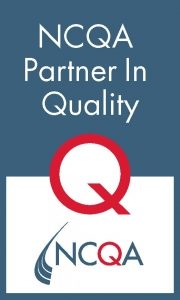Trauma (Including Medical Trauma and Pain Management)
Resources for supporting youth who have had traumatic experiences, including pain and medical trauma.

Screening and Assessment Tools
Child Trauma Screening Questionnaire: Free measure of re-experiencing and hyperarousal symptoms in children.
Children’s Revised Impact of Event Scale: Free, eight-item measure of trauma symptoms for children ages 8 and above who can read independently.
Trauma Symptom Checklist for Children: Proprietary measure for measuring trauma disorder symptoms in children ages 6-18.
UCLA Post-Traumatic Stress Reaction Index (PTSRI): Proprietary instrument for measuring exposure to and impact of traumatic events for children ages 6-18.
Helping Give Away Psychological Science from the University of North Carolina at Chapel Hill: Patient-facing interactive and self-scoring versions of the SCARED, GAD-7, PHQ-9, and many other instruments. Available in English.
Therapy Tools and Patient Handouts
Washington State CBT+ Initiative: Extensive online resource of four evidence-based pediatric Cognitive Behavioral Therapy (CBT) interventions, including: CBT for depression; CBT for anxiety; trauma-focused CBT; and Parent Management Training. For patients with anxiety, see sections on “Coping Skills” and “CBT for Anxiety.” For patients with trauma disorders, see also “CBT for Trauma” section.
TherapistAid Free Worksheets: Free, printable worksheets for kids and teens on basic CBT concepts including the Cognitive Triangle, Core Beliefs, and Thinking Traps.
National Child Traumatic Stress Network: Turning the Tide: Parenting in the Wake of Past Trauma: 28-page booklet on parenting for parents who have experienced trauma themselves.
What is Complex Trauma? A Resource Guide for Youth and Those Who Care About Them : 19-page family-facing booklet from the National Child Traumatic Stress Network on complex (repeated) trauma in youth.
Meg Foundation for Pain: Online family- and provider-facing resources created to “empower families with the skills, strategies, and support they need to manage pain and medical anxiety.” Includes resources for procedural, acute, and chronic pain.
It Doesn’t Have to Hurt: Canadian family-facing website on pediatric pain management, including information on managing cancer pain, arthritis pain, and needle phobia.
Treatment and Pharmacology Guides
Supporting Children Who Have Experienced Trauma: Resources for pediatricians from the American Academy of Pediatrics.
AACAP Disaster and Trauma Resource Center: Clinician resources from the American Academy of Child and Adolescent Psychiatry.
AACAP Physically Ill Child Resource Center: Clinician resources from the American Academy of Child and Adolescent Psychiatry.
Virginia Mental Health Access Program Guide for Promoting Child and Adolescent Behavioral and Mental Health in Primary Care (VMAP Guidebook): The VMAP Guidebook is a compilation of evidence-based practices, up-to-date resources, and practical knowledge specifically geared toward pediatric and adolescent healthcare providers.
Massachusetts CPAC Guidelines and Clinical Pearls: Guidelines and clinical pearls from the Massachusetts Child Psychiatry Access Program.
Florida Best Practice Psychotherapeutic Medication Guide: Algorithms for the treatment of pediatric mental health issues in primary care settings, from The Florida Center for Behavioral Health Improvements and Solutions and the University of South Florida.
Michigan Pediatric and Perinatal Psychopharmacology Cards: Reference cards from the MC3 mental health access program at the University of Michigan.
Billing and Coding
AAP Trauma/Maltreatment Coding Fact Sheet for Primary Care Pediatricians: Factsheet from American Academy of Pediatrics, including CPT codes with explanations, examples, and ICD-10 diagnosis codes.
Coding for Pediatric and Adolescent Mental Health: Coding guidelines from the Virginia Mental Health Access Program Guidebook (page 37).
Webinars for Providers
The 12 Core Concepts for Understanding Traumatic Stress Responses in Children and Families: An Online Interactive Course: Offers interactive online lessons on the 12 Core Concepts for Understanding Traumatic Stress Responses in Children & Families. The Core Concepts are conceptual lenses used to better understand childhood trauma, its causes, effects, and strength-based systems approaches to case conceptualization and intervention planning.
Culturally Responsive, Trauma-Informed Practices for Pediatric Primary Care and Behavioral Health Providers: Resilience Breaks is a series of webinars for Maryland pediatricians from BHIPP.
Trauma in Young Children, Parts 1 and 2: Lectures from the MC3 mental health access program at the University of Michigan.


